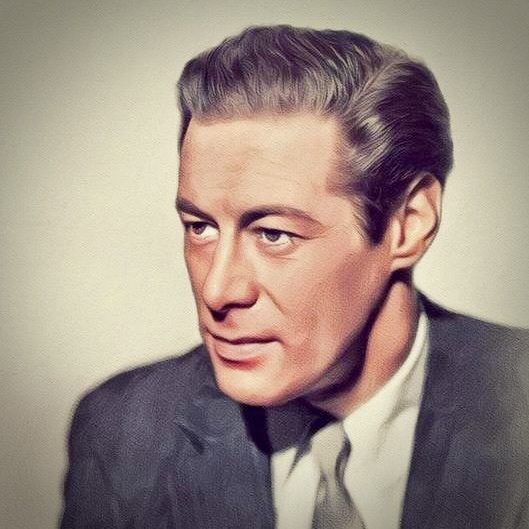- cross-posted to:
- [email protected]
- cross-posted to:
- [email protected]
(Sorry, maxso216, but this is truly the shortest functional train line in Japan.)
The DisneySea Electric Railway is a 2-station line coming in at less than half a kilometer in total length (0.48km). Even at the relaxed 15kph speed of the trains, it only takes two and a half minutes to traverse the entire line. The line runs between the American Waterfront and Port Discovery areas of Tokyo DisneySea. It also has what must be the smallest fleet of rolling stock of any line in Japan; Four two-car sets, of which only two or three sets are in operation at any given time. (Fewer sets than even the Tokyo Disney Resort Line monorail.)
Sign over the American Waterfront Station entrance:
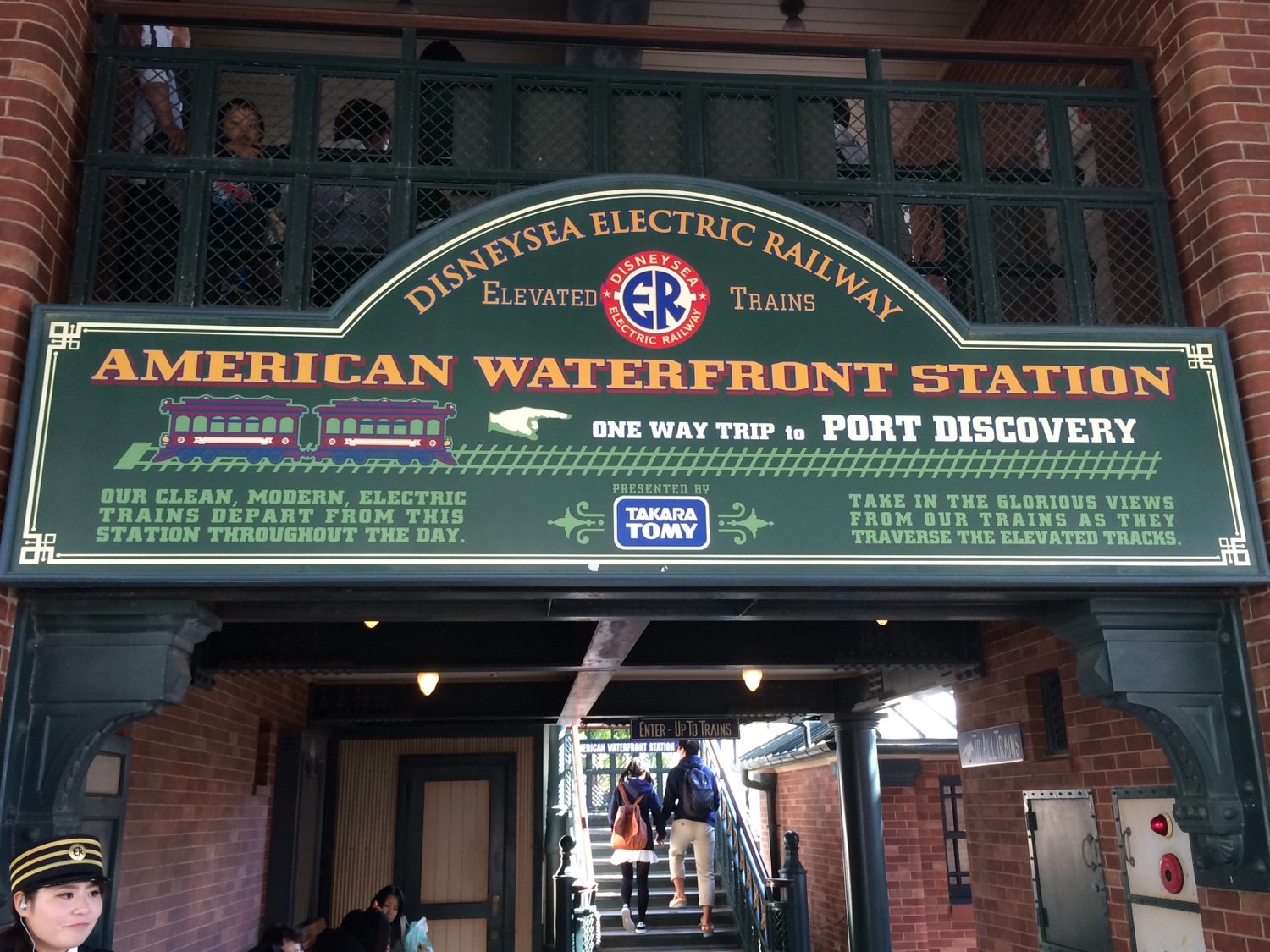
A trivial oddity about the trains is their numbering system. Which initially appears to not be a system at all. All eight cars of the four train sets have a unique (yet random) car number, and the set pairs are never separated from each other. The only discernible pattern with the car numbers is that the final digit in each number seems to represent in which order the sets were commissioned:
Set #1) 5591 & 1111
Set #2) 1022 & 2842
Set #3) 1783 & 5593
Set #4) 0214 & 4824
Set #1 traversing the elevated tracks over American Waterfront:
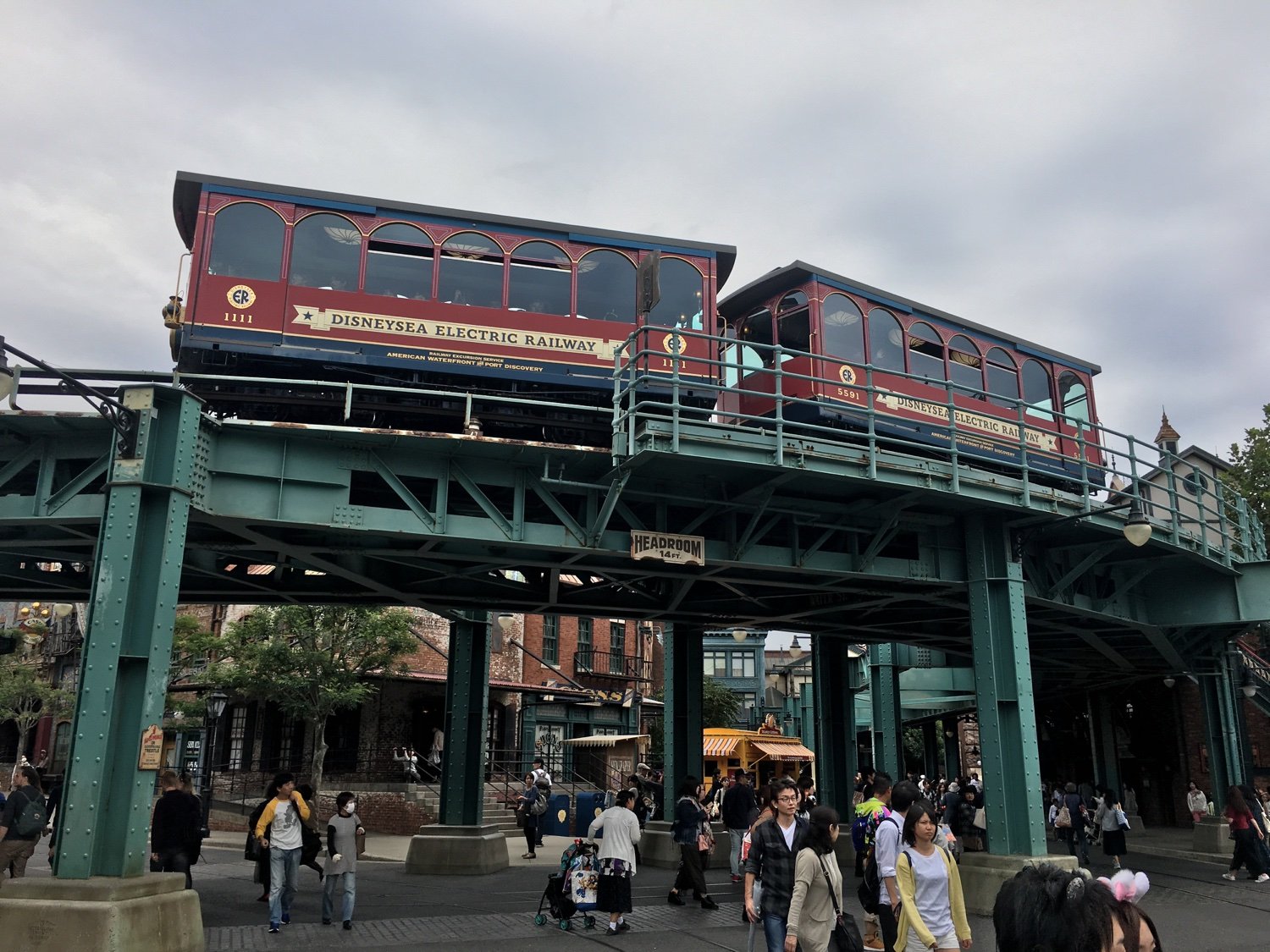
The origin of the train sets are a bit of mystery. Their manufacturer is not known. Since the beginning of operation in 2001, the DisneySea Electric Railway has been sponsored by Takara Tomy - A Japanese toy company that makes functioning toy train sets, including replicas of the trains on the DisneySea Electric Railway.
Set #3 passing another train bound for Port Discovery Station.
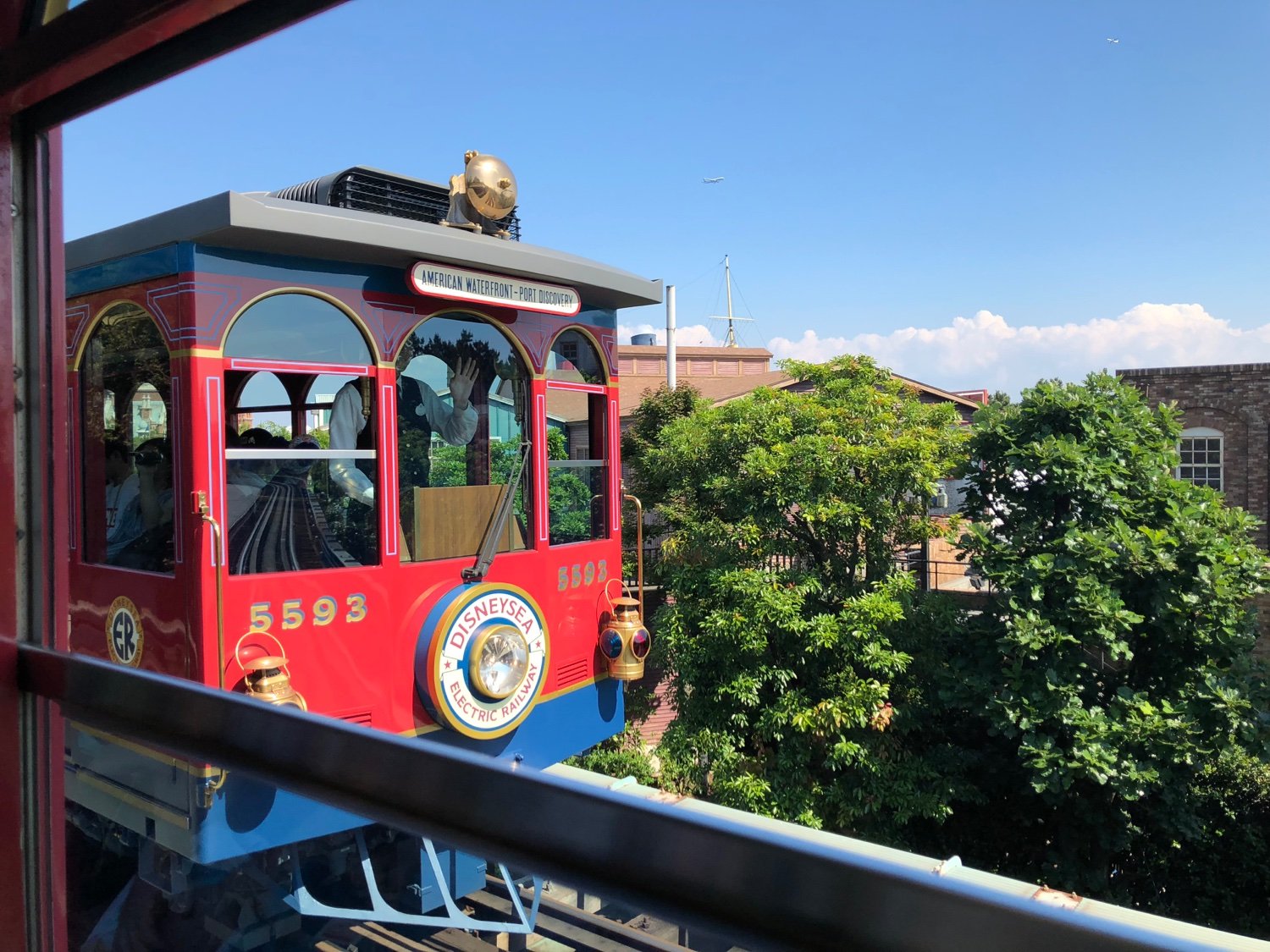
It is possible that the train sets were designed and built by WED themselves as simply another park attraction, or possibly by Kyosan Kogyo Co. Ltd. which manufactured the sets used on the Western River Railroad in Tokyo Disneyland. The DisneySea Electric Railway sets are modeled to resemble some of the elevated streetcars used in what became the New York City subway system at the turn of the 20th century.
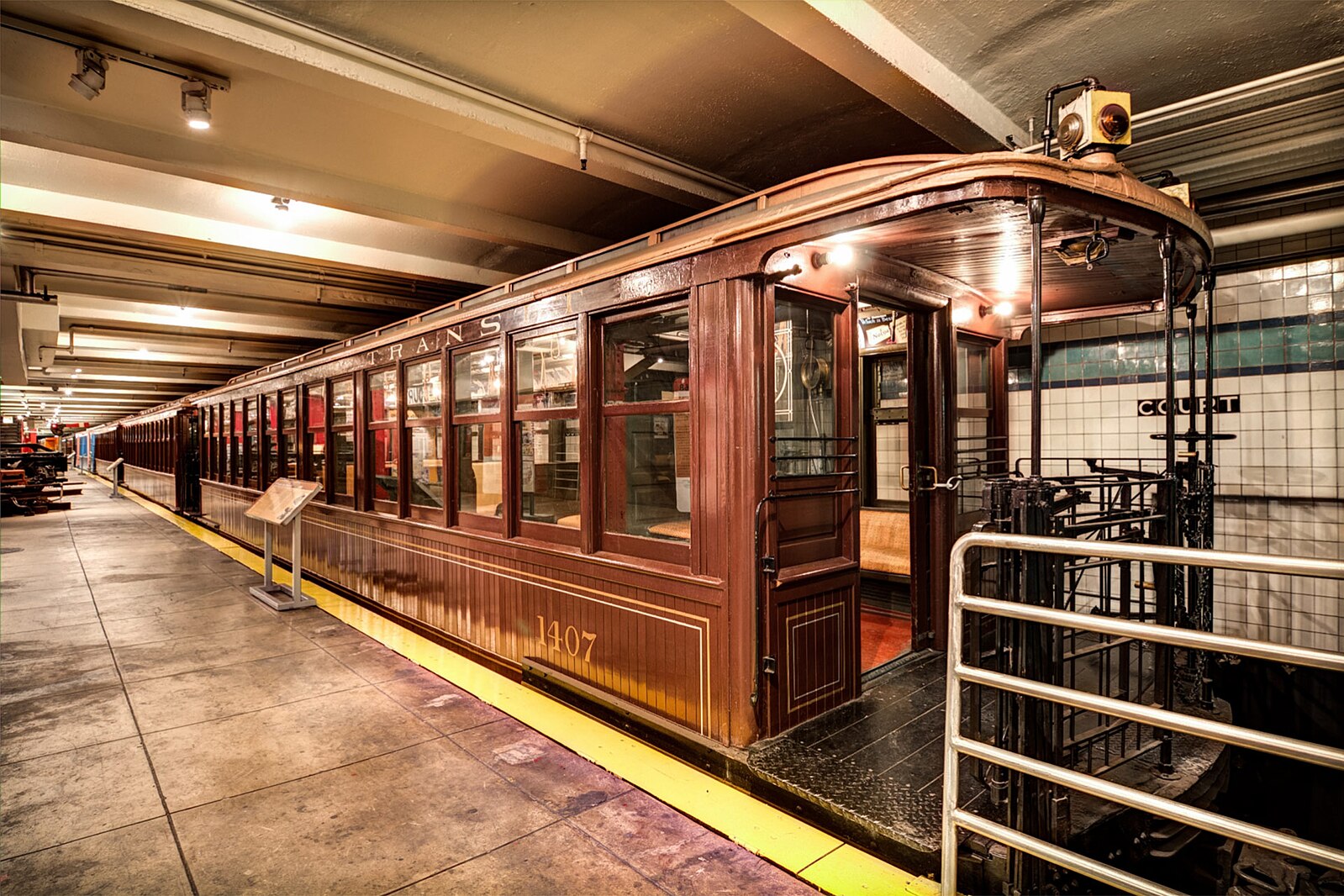
Preserved Brooklyn Union streetcar at the New York City Transit Museum, Wikipedia
All four sets have been in service since Tokyo DisneySea opened on September 4th, 2001. Apart from having air conditioners installed in 2015, there have been no notable improvements to the trains themselves.
Set #3 leaving American Waterfront Station:
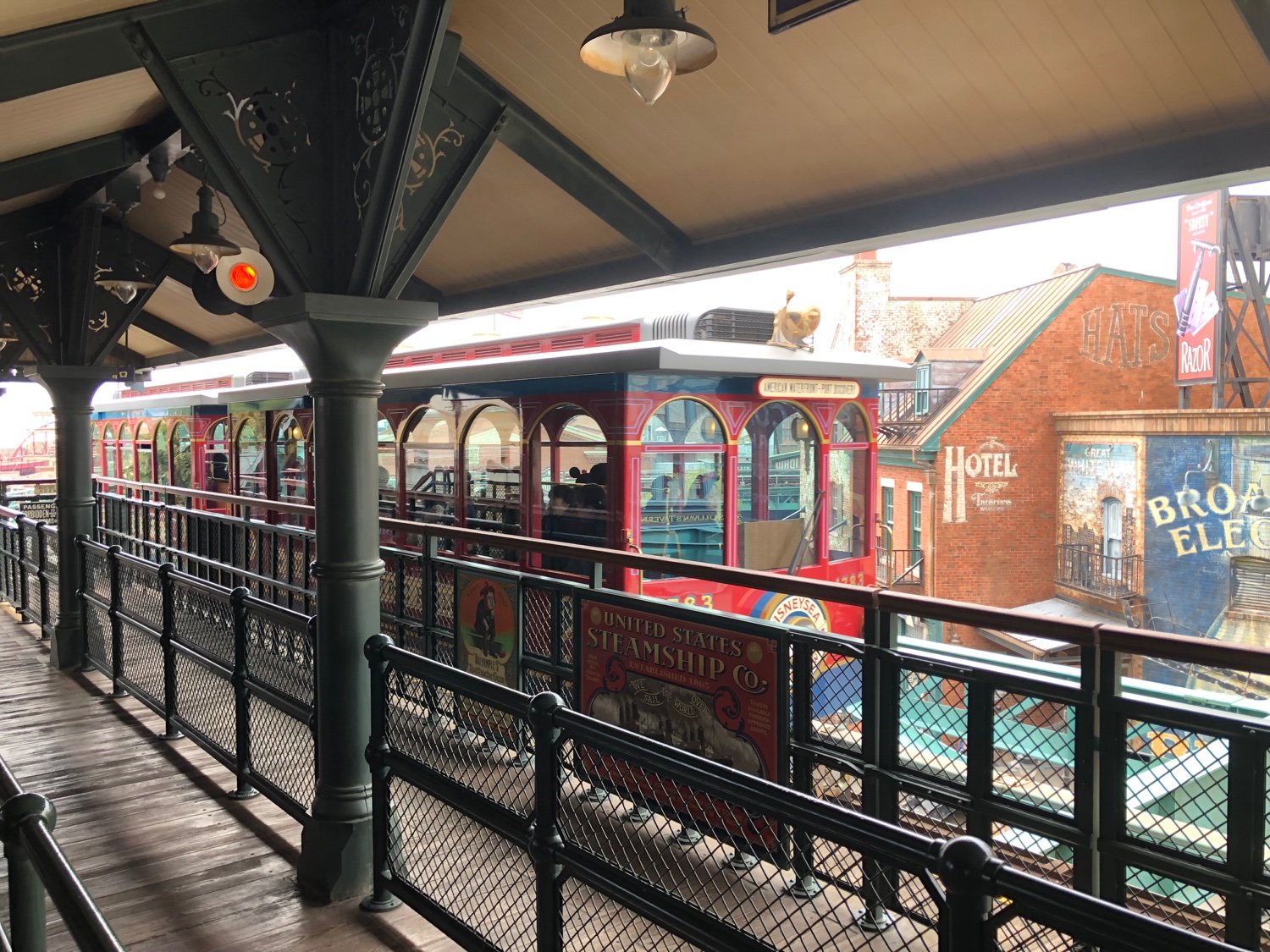
Is the DisneySea Electric Railway an actual train line? Yes. In addition to having two stops which allows the line to be used by park guests to easily get from one side of the park to the other, the line falls under the jurisdiction of Japan’s transit authority. Despite being on private land and requiring admission to the park to use, DisneySea Electric Railway must adhere to the same standards as any other public train line.
Set #2 arriving at Port Discovery Station:
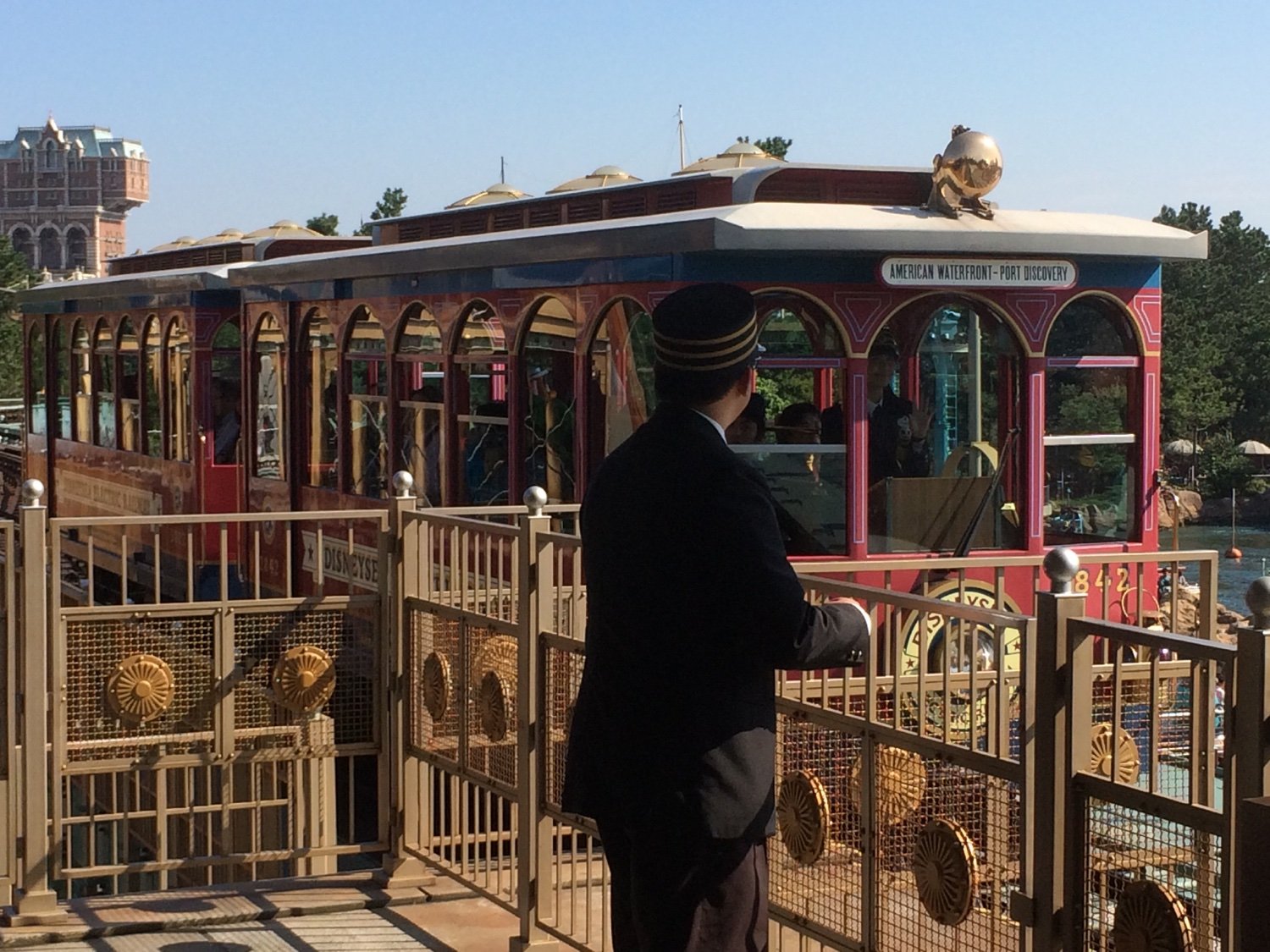
When Tokyo Disneyland was built and opened in 1983, the Western River Railroad was purposefully designed to have only one stop and run in a loop that sent riders back to where they started to avoid a law that required charging a train fare and that a departure schedule be posted and followed by the line’s operators. This decision made it another attraction, rather than a functional line like the Disneyland Railroad in Anaheim. This particular law was abolished in 1987, allowing DisneySea Electric Railway to function as an actual line with destinations without needing to follow those rules.
(This is my first attempt at a long form post here, let me know how I did. All pictures are by me unless noted.)
Love the pics and the write up! I worked the Red Car Trolleys at Disney California Adventure and always wanted to visit DisneySea. Fun fact, when you work at Disney you could visit any park (and use your sign-ins) EXCEPT the Tokyo parks. My understanding is that it’s the only parks that Disney doesn’t actually own the land it’s built upon.
The Red Cars at DCA were a funny beast as the overhead catenary cable was purely for show. Both of the trolleys ran on boat batteries daisy chained together that would wirelessly charge at one of the stations and in the barn. That caused quite a bit of downtime due to one of the batteries failing and taking the whole daisy chain down. I got to know the mechanics pretty well working there haha. The attraction went down for a refurb a few years back and ideally they’d have switched out that particular system. We were considered a ‘Red Triangle’ (hazard pay) because we were the only attraction that had its ride path open to guests in DCA. We’d only go 4mph max, but you felt the jolt if the deadman’s switch went off at full speed haha.
The two trolley’s were both based off of the Pacific Electric line and their numbers were significant dates; 623 (called Veronica among the cast) was June 1923 - the year Walt Disney came to California and has a slightly more sedate color scheme being modeled after an older line. 717 - is July 17th, 1955 for the opening day of Disneyland. The original 717 is also still in operation at the Southern California Railway Museum and was used in the filming of Who Framed Roger Rabbit!
Edit; I only just now realized this was a community for Japanese vehicles specifically. Apologies! I thought this was the more general Trains/Trolleys/Trams community
Don’t apologize, great response. I’m actually jealous you got to drive a train at a Disney park. Even if one could just walk beside the train on its journey.
The reason you guessed Tokyo Disney Resort stands apart from every other Disney park is half the answer. The Oriental Land Company owns the land and the park itself. They license the Disney IP through a sweetheart deal that was effectively required for Disney to break into the Japanese market. Disney had tried and failed to build their own park in Nara several years before Tokyo Disneyland opened. Going through a local company made Japanese regulators feel better about the project.
Many, many people attribute TDR’s superior quality and service to that fact. Disney’s trademark style mixed with Japanese precision and dedication to perfection - literally the best of both worlds. It has certainly benefitted Disney in the long run.
Thanks on both counts :D
Also appreciate the extra info on the Tokyo parks, it’s been a few years since I worked there and just remembered they didn’t own it out-right.
I took a lot of pride in the work I put out while working at the Cali parks; but I don’t doubt it was a completely different atmosphere. We’d get quite a few guests from Japan via the Pacific and they were always a pleasure to be around. For better and for worse the American guests were a lot more casual (and to my chagrin the cast as well) so depending on the group I could tailor spiels. We ran a slightly loose ship, but if you knew how the system worked, you could make magic happen.
I worry it might be in bad taste to reference the major earthquake that they had to deal with, but that’s when I truly saw how phenomenal a response could be. We get trained on disaster scenarios but all I had dealt with was a 5M. Haven’t been yet, but that park will always have my respect.
Thanks to your post, I found this instance of Japanese train geeky love. They took it to a whole 'nother level. This is an automatic subscription from me.
I love Japanese train enthusiasm. I love how the ever-changing Japanese train timetables almanac is as thick as the telephone White Pages of a city. I love how people in Japan can and do schedule trips to ride specific obscure or remote lines, just for the joy of it. I love watching those train shows from NHK.


